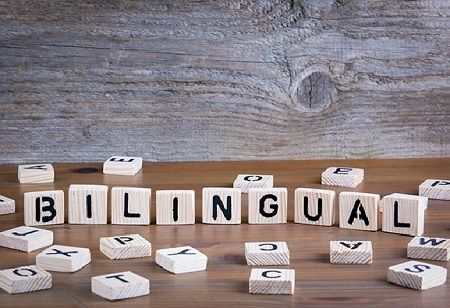-
The implementation of bilingual education is one of the most effective measures that have been implemented in enhancing the learning of languages and the general intellectual growth of learners. Given the further development of globalization, the demand for learning several languages rises and therefore the inclusion of the bilingual approach in the contemporary educational system. This way not only aids in teaching the child several languages but also assists in the development of thinking patterns, problem-solving, and a more culturally aware child. Moreover, there is evidence that links bilingual education with academic and socio-cultural benefits that will enable learners to have competitive edges in the global economy. However, it is not without its limitations and criticisms which this article also discusses together with future directions that may further improve the efficacy of bilingual education.
Mastering Language Skills through Bilingual Education
Bilingual education is one of the methods that include the usage of two languages in the classroom for the purpose of students' mastering the language. This teaching and learning method is advantageous to learners as they constantly assess and apply what they have learned in both languages. Studies prove that children enrolled in bilingual programs are able to acquire both languages effectively and also enhance their phonetic skills, vocabulary, and grammar. The consistent exposure to both languages in real-life situations provides a better appreciation of the fine details of the languages; the learners are able to understand the structures of the language and also express themselves in the various settings. It not only helps develop language proficiency but also helps in improving executive control and cognitive flexibility.
Cognitive Development in Bilingual Individuals
The advantages of bilinguals are usually more marked than those of monolinguals on cognitive aspects. The use of two languages in the classroom entails consistent use of the brain in translating from one language to the other, and this enhances executive skills like decision-making, multitasking, and concentration. It has also been found that bilinguals are more cognitive and excel in tests where there is a requirement of switching between different tests or in situations where there is a lot of interference. Also, bilingualism has been associated with a postponement of dementia and other age-related cognitive impairments, suggesting the existence of long-term cognitive advantages. For example, Singapore has people from all over the world, including English-speaking nations, and the majority of the population is bilingual, using English, Mandarin, Malay, and Tamil. Certain researchers have also noted that Singaporean bilinguals are blessed with better abstract thinking and less of a measure of cognitive decline in their post-employment years, which is indicative of the general benefits of bilingualism.
Academic Achievement and Bilingual Education
Bilingual education benefits the student academically, where students in bilingual classes are more successful than those in monolingual classes in all subjects. This academic performance is linked to the benefits of being bilingual, including improved memory, analysis, and problem-solving. Bilingual students also have better metalinguistic awareness, which in turn helps them comprehend and control language forms. This awareness is useful for enhancing their reading and writing skills in both languages, thus enhancing their understanding of the content and their ability to express ideas. Consequently, bilingual education has the dual positive and direct effect of language acquisition, but also good influences in other academic fields, thus, the students are able to acquire new language skills which then positively affect their learning experiences in the school.
Socio-Cultural Benefits of Bilingual Education
Socio-cultural benefits are also accrued from bilingual education in addition to the cognitive and academic values. It promotes cultural understanding and tolerance, which leads to the development of a good appreciation for cultural differences and diversity. It is widely believed that a bilingual person is able to deal with several cultural environments, which in turn enhances the social life and experience. This cultural competence is particularly beneficial in today’s global village, where people from different cultures interact in their day-to-day activities. Through exposure to different languages and cultures, bilingual students gain global perspectives and can effectively fit into any community and environment.
Challenges and Criticisms of Bilingual Education
However, like any other form of education, bilingual education faces several challenges and criticisms. One of the major problems is the lack of teachers fluent in both languages, which may affect the quality of learning and restrict the possibilities of the programs. Also, there are sentiments that, through bilingual education, learners are likely to be slow in mastering one of the languages or both; hence, the general language development will be affected. Some of the problems that are raised by the critics include the fact that bilingual programs can be costly and hence present practical difficulties in some learning environments. However, there is a continuous discussion on which type of program is the most effective for bilingual education: immersion, transitional, or dual. For example, in some rural areas of the Philippines, due to the scarcity of resources and lack of qualified teachers who are fluent in the second language, the bilingual programs have been affected, and therefore, the achievement level has been affected.
Conclusion: The advantages of bilingual education are numerous: the development of the second language, the development of thinking, academic success, and socio-cultural adaptation. These advantages depict the importance of bilingual education in molding students to fit into a world that is diverse and interconnected. However, there are difficulties and controversies, for instance, shortages of teachers and the need for resources, but they are solvable through further studies and developments. Thus, addressing these problems and improving the practices of bilingual education would help make the approach more beneficial and suitable for every learner. In conclusion, bilingual education will be beneficial to students as it will enable them to acquire essential skills and perceptions as well as make them more suitable in the global society.
🍪 Do you like Cookies?
We use cookies to ensure you get the best experience on our website. Read more...

